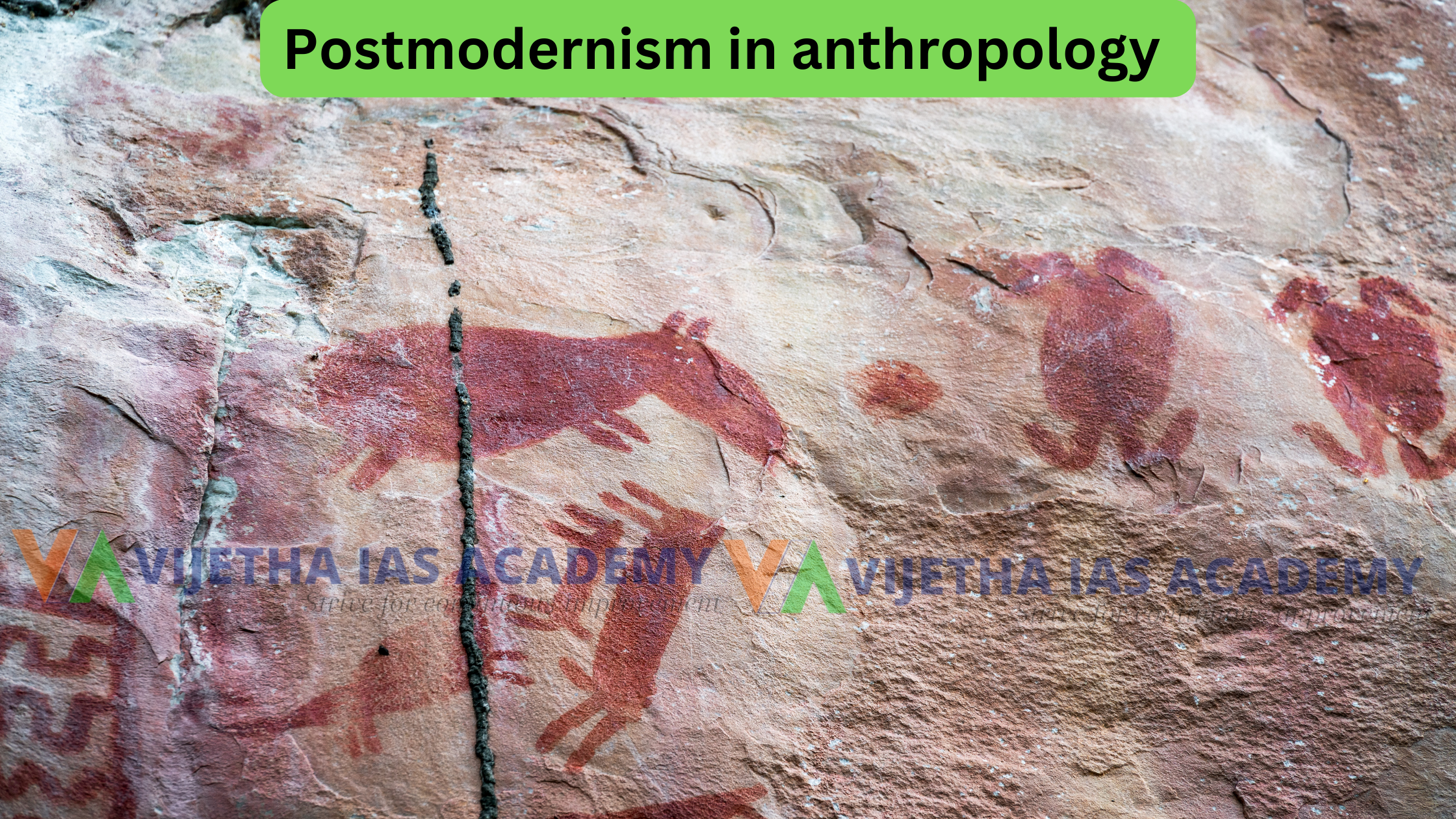
Postmodernism in Anthropology: A Critical Approach for UPSC Anthropology Optional
Postmodernism in anthropology represents a significant shift in how anthropologists understand and interpret human societies and cultures. It challenges the traditional frameworks and methods, advocating for a more reflexive and interpretative approach. For UPSC aspirants opting for anthropology, grasping the nuances of postmodernism is essential to tackle the subject comprehensively. To aid in this endeavor, enrolling in specialized courses like those offered by Vijetha IAS Academy and benefiting from the expertise of Kishore sir can be immensely beneficial.
Understanding Postmodernism in Anthropology
Postmodernism emerged as a reaction to the limitations and perceived biases of modernist approaches in anthropology. It emphasizes subjectivity, reflexivity, and the deconstruction of grand narratives. Postmodern anthropologists argue that all knowledge is context-dependent and that anthropological studies should reflect the complexity and plurality of human experiences.
Key Features of Postmodernism in Anthropology
-
Reflexivity: Postmodern anthropologists advocate for self-awareness and critical reflection on their own biases and the impact of their presence in the field. This includes questioning their own positionality and the power dynamics involved in the research process.
-
Deconstruction: This involves critically analyzing and breaking down established theories and concepts to reveal underlying assumptions and power structures. Deconstruction aims to expose the limitations and biases of traditional anthropological narratives.
-
Narrative and Textual Analysis: Postmodernism emphasizes the importance of language and narrative in shaping our understanding of cultures. Anthropological works are viewed as texts that should be analyzed for their rhetorical and stylistic elements, recognizing that they are constructed and not objective representations of reality.
-
Multiplicity of Perspectives: Postmodernism rejects singular, authoritative interpretations of cultures. It promotes the inclusion of multiple voices and perspectives, especially those of marginalized and indigenous communities.
-
Cultural Relativism: Building on the concept of cultural relativism, postmodernism stresses that cultures should be understood on their own terms without imposing external value judgments.
Impact of Postmodernism on Anthropological Practice
Ethnographic Fieldwork
Postmodernism has revolutionized ethnographic fieldwork by encouraging anthropologists to adopt more participatory and collaborative approaches. Researchers are urged to engage with their subjects as co-creators of knowledge rather than passive informants.
Writing Culture
One of the seminal works in postmodern anthropology is ""Writing Culture,"" edited by James Clifford and George Marcus. This book critiques the ethnographic authority and encourages anthropologists to reflect on how they write and represent cultures. It argues for a more experimental and narrative-driven approach to ethnographic writing.
Critical Anthropology
Postmodernism has given rise to critical anthropology, which challenges traditional power structures and advocates for social justice. This approach focuses on issues like colonialism, globalization, and inequality, emphasizing the role of anthropology in addressing real-world problems.
Relevance to UPSC Aspirants
For UPSC aspirants, understanding postmodernism in anthropology is crucial for several reasons:
Analytical Skills
Postmodernism hones analytical skills by encouraging critical thinking and reflexivity. It requires students to question established norms and consider multiple perspectives, which is essential for the UPSC exam.
Comprehensive Understanding
Postmodernism provides a more comprehensive understanding of human cultures by emphasizing diversity and complexity. This broader perspective is invaluable for tackling interdisciplinary questions in the anthropology optional paper.
Essay Writing
Knowledge of postmodernism enhances essay writing skills. It allows aspirants to critically engage with topics and present nuanced arguments, making their essays more compelling and insightful.
Interview Preparation
In the interview stage, demonstrating an understanding of postmodernism can impress the interviewers. It shows that candidates are well-versed in contemporary anthropological theories and can think critically about complex issues.
Enhancing Your Preparation with Vijetha IAS Academy
Given the complexity of postmodernism, specialized coaching can be immensely beneficial. Vijetha IAS Academy offers comprehensive courses designed for UPSC aspirants, covering all essential topics under the expert guidance of Kishore sir.
Benefits of Enrolling in Vijetha IAS Academy
- Expert Guidance: Learn from experienced educators like Kishore sir, who provide in-depth knowledge and practical insights into postmodern anthropology.
- Structured Curriculum: Follow a well-organized syllabus that systematically covers all essential topics, ensuring comprehensive preparation.
- Interactive Learning: Engage in discussions, doubt-clearing sessions, and interactive classes that enhance understanding and retention.
- Regular Assessments: Benefit from regular mock tests and practice papers to evaluate your progress and identify areas for improvement.
- Practical Exposure: Gain insights through case studies and real-life examples that bridge the gap between theoretical knowledge and real-world applications.
Integrating Postmodernism into Your Study Plan
Focus on Key Thinkers
Study the works of key postmodern anthropologists like James Clifford, George Marcus, and Clifford Geertz. Understand their contributions and how they have shaped contemporary anthropological thought.
Reflective Practice
Incorporate reflexivity into your study routine. Reflect on your own biases and perspectives, and consider how they influence your understanding of anthropological concepts.
Comparative Analysis
Compare postmodernism with other anthropological theories, such as structuralism, functionalism, and cultural materialism. This comparative approach will deepen your understanding and help you articulate your arguments more effectively.
Practice Answer Writing
Regularly practice writing answers to previous years' questions and mock tests. Focus on structuring your answers well, using specific examples to support your arguments, and critically engaging with the topics.
Conclusion
Postmodernism in anthropology offers a critical and reflective approach to understanding human cultures. For UPSC aspirants, mastering this complex yet fascinating field is crucial for both the anthropology optional paper and overall exam preparation.
Enrolling in specialized courses like those offered by Vijetha IAS Academy and leveraging the expertise of Kishore sir can significantly enhance your understanding and preparation. By integrating postmodernism into your study routine, you can approach the UPSC exam with confidence, equipped with a comprehensive understanding of contemporary anthropological thought and its applications.
